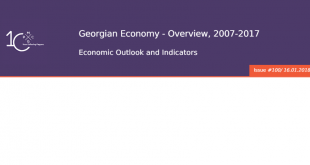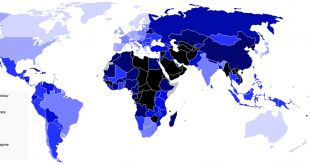Governance consists of the traditions and institutions by which authority in a country is exercised. This includes the process by which governments are selected, monitored and replaced; the capacity of the government to effectively formulate and implement sound policies; and the respect of citizens and the state for the institutions that govern economic and social interactions among them. The Worldwide Governance Indicators (WGI) project reports aggregate individual governance indicators for over 200 countries and territories over the period 1996-2015, for six dimensions of governance.
All six components are following:
- Voice and Accountability
- Political Stability and Absence of Violence
- Government Effectiveness
- Regulatory Quality
- Rule of Law
- Control of Corruption
The six composite WGI measures are useful as a tool for broad cross-country comparisons and for evaluating broad trends over time. However, they are often too blunt tool to be useful in formulating specific governance reforms in particular country contexts. Such reforms, and evaluation of their progress, need to be informed by much more detailed and country-specific diagnostic data that can identify the relevant constraints on governance in particular country circumstances.
***
The article is based on the information of The World Economic Forum.
Copyright on the material is protected. In case of it’s full or partial publication, please indicate at it’s beginning – “Source: business.org.ge”
 business.org.ge Portal for Entrepreneurs
business.org.ge Portal for Entrepreneurs






